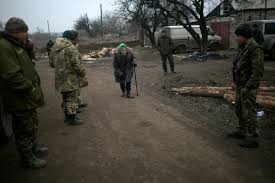Legal aspects of international humanitarian law and rules of warfare
International humanitarian law (IHL) is a branch of international law that regulates relations between states and other subjects of international law during armed conflicts. The main purpose of IHL is to limit the consequences of war, protect persons who are not or have ceased to participate in hostilities, and limit the means and methods of warfare.
The main sources of international humanitarian law
Geneva Conventions
- Geneva Convention I (1949) for the Amelioration of the Condition of the Wounded and Sick in Regular Armies.
- Geneva Convention II (1949) for the Amelioration of the Condition of Wounded, Sick and Shipwrecked Members of Armed Forces at Sea.
- Geneva Convention III (1949) relative to the Treatment of Prisoners of War.
- Geneva Convention IV (1949) relative to the Protection of Civilian Persons in Time of War.
Additional Protocols to the Geneva Conventions
- Additional Protocol I (1977) for the Protection of Victims of International Armed Conflicts.
- Additional Protocol II (1977) for the Protection of Victims of Non-International Armed Conflicts.
- Additional Protocol III (2005) on the adoption of an additional emblem (Red Crystal).
Hague Conventions
- The Hague Convention (1907) on the Laws and Customs of War on Land.
- The Hague Convention (1907) on the Limitation of the Use of Force in Naval Warfare.
Basic principles of international humanitarian law
The principle of distinction
Military action must be directed only against combatants and military objectives. Civilians and civilian objects must be protected from attack.
The principle of proportionality
Damage to civilians and civilian objects should not be disproportionate to the expected military advantage.
The principle of necessity
The use of force must be justified by military necessity and must not exceed the limits necessary to achieve a legitimate military objective.
The principle of humanity
It is prohibited to use methods and means of warfare that cause excessive suffering or unnecessary injury. You may be interested in the following articles: legal advice, legal advice, document analysis, legal analysis of the situation, written advice, verification of documents by a lawyer, lawyers documents, online legal assistance, online lawyer, legal opinion, legal opinion of a lawyer, lawyer online.
Prohibited methods and means of warfare
Prohibited methods
- Attacks on civilians.
- The use of starvation as a method of warfare.
- Using civilians as human shields.
- Attacks on UN peacekeeping forces.
Prohibited substances
- Chemical and biological weapons.
- Weapons that cause excessive damage or have indiscriminate effects.
- Anti-personnel mines (according to the 1997 Ottawa Convention).
- Cluster munitions (in accordance with the Convention on Cluster Munitions, 2008);
International tribunals and courts
International Criminal Court (ICC)
The International Criminal Court (ICC), located in The Hague, the Netherlands, is a permanent international judicial body established by the Rome Statute, which entered into force on July 1, 2002. The ICC has jurisdiction to try cases of genocide, war crimes, crimes against humanity and crimes of aggression.
The main functions of the ISS:
- Investigation and prosecution: The ICC has the power to investigate crimes within its jurisdiction and to prosecute those responsible for them.
- Administration of justice: The ICC promotes justice at the international level when national judicial systems are unable or unwilling to conduct proper investigations and trials.
- Protection of victims: The ICC pays special attention to the protection of victims and witnesses, as well as reparations for victims.

































